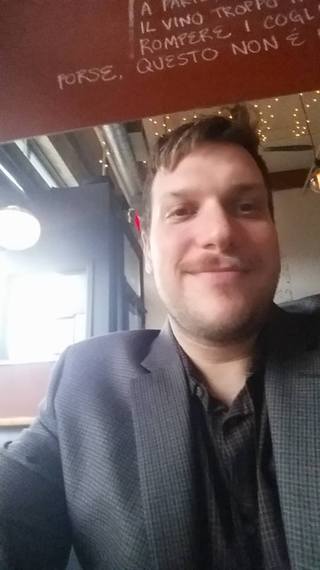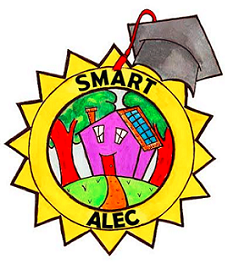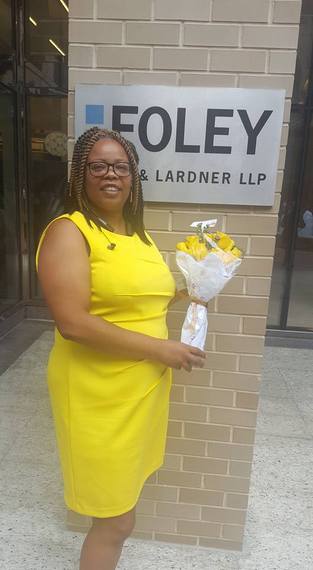
Matthew Charles Cardinale, activist, law student, and affordable housing advocate, refused to respond to ALEC's demand to cease using the name "SMART ALEC" for the State and Municipal Action for Results Today / Agenda for Legislative Empowerment and Collaboration, an organization that he founded.
The right-wing/libertarian organization named ALEC (American Legislative Exchange Council) funded, in part, by the billionaire Koch brothers Charles and David, fear that upstart SMART ALEC may ruin their brand.
"Our name is a double entendre," said Cardinale. "On the one hand, the colloquialism has existed much longer than they [ALEC] have, and if it comes down to it, I'm going to have my dad do a notarized affidavit that I've been a smart aleck since childhood. The other half of it, is we're a smart alternative to ALEC and that is protected under the parody/free speech doctrine. I don't think there's an issue of consumer confusion. It's a clear parody. I don't think anyone would hear my voice and hear me talking about solar panels and transparency and low income people involved in democracy and really think that I'm the American Legislative Exchange Council CEO (laughing)."
Cardinale wants people to know the similarities and differences between his organization and ALEC. Both Alecs craft model legislation and help state and local governments change policy. Both want to make sweeping changes, city by city, county by county. But the similarities end there.
"We don't want to be exactly like ALEC, in fact there's problems with ALEC and the way they operate. For one, they're not transparent and they're not grassroots and participatory. It's more about big corporations and Republican legislators having retreats on secluded islands where the public isn't invited and the media better not show up or they're thrown out." Cardinale gave one example of an off-limits ALEC meeting that Atlanta's Channel 11 tried, unsuccessfully, to access.
In contrast, SMART ALEC built unique character into their charter. "We have in our bylaws a mandate for diverse representation as well as 1/3 low income participation, which means that both our advisory board and our board of directors has to have at least 1/3 low income people on it."
SMART ALEC's goal is to help ten U.S. cities and counties adopt affordable housing impact statements by 2018, using model legislation that Cardinale spearheaded in Atlanta. Their Go Fund Me page seeks to raise $100,000 toward this end. Currently four cities: New Orleans, Los Angeles, Albany NY, and Pittsburgh, PA have pending legislation similar to Cardinale's Affordable Housing Impact Statements (AHIS) used in Atlanta. As each city becomes successful in adopting SMART ALEC's model legislation, it can be replicated around the country.
"State, county, and local election officials and their staff are completely overwhelmed with the gravity of the many problems we're facing today, of which affordable housing and the environment are two of our biggest crises. They don't necessarily have the resources to research what is the best practice on every issue and do all the work to implement each solution in their jurisdiction." Cardinale has the templates for change and is already finding success. "It's certainly a benefit when you have an organization like ALEC or SMART ALEC that says this is something that has worked in another jurisdiction and we put it into a form that is actionable and adaptable," said Cardinale.
June 2016, Cardinale and SMART ALEC's Board Secretary Dr. Dwanda Lee Farmer, one of the country's few PhD's in Community Development, met with the City Planning Commission and Mayor's Office in New Orleans to discuss the AHIS study.
But the meeting in New Orleans wasn't all beignets and powdered sugar. "Developers have come out in opposition to the ordinance. When you're trying to do something meaningful around affordable housing, there are naysayers and challenges," said Cardinale. "What we hope to do is provide the various cities with everything they need to address whatever concerns come up, because we have heard them all before. We're not only producing model bills for replication, we are part of the process of putting them in place. Each jurisdiction has unique needs, unique political climates, and we're always trying to make it work for each situation."
New Orleans is now in the midst of a series of public hearings and a study being done by the planning commission.
"What we're seeing in cities across the nation is the urgent need to come up with really great solutions that should be replicated." Cardinale said, citing environmental and weather crises as current and imminent threats to livability. SMART ALEC provides a national advisory board for model legislation so that cities can respond quickly.
Other organizations serve as solution-sharing leaders for model legislation. For example:
Represent.us: tackles government corruption, conflict of interest, and campaign finance bribery.
Community Rights PDX: A Portland-based Community Rights advocacy program that can be replicated by communities who want to stand up against giant corporations that are negatively impacting their lives. (PDX stands for Portland.)
State Innovation Exchange: promotes a progressive agenda to protect workers rights with labor-related legislation
Represent.us provides a template called the American Anti-Corruption Act. Their bill puts a cap on campaign donations, deals with the revolving door between government and private interests, and makes bribery of elected officials illegal. They offer citizens an almost turn-key program for implementing it.
Paul Cienfuegos, founder of Democracy Unlimited of Humboldt County and national leader in the rapidly growing community rights movement, has prepared several videos and podcasts to educate communities about how they can pass locally enforceable laws that ban harmful but legal corporate activities, enshrine their right of self-government, and strip corporations of their so-called constitutional "rights." 200 communities in nine states have already done so, with very few legal challenges to date. He urges people to address catastrophic climate destabilization by using "the most ambitious expansion of community self-governance since the American revolution." For example, Coos County, Oregon implemented an ordinance called Right to Sustainable Energy Future banning the transportation, manufacture or drilling of non-sustainable energy sources.
The State Innovation Exchange offers legislation that promotes justice for working families and community members. Their most recent campaigns are for equal pay, earned leave for working families, voter registration modernization, and criminal justice reform.
"When people are homeless on the street and we're facing environmental challenges such as change to our global temperature, endangered species, nuclear power, very urgent issues, we don't have the flexibility to experiment forever," Cardinale said.
SMART ALEC's next move is to offer communities a suite of model bills to address these critical issues. "We will create an affordable housing and renewable energy package, because these things work together," said Cardinale. "We definitely want to look at solutions around solar energy. Most cities have city halls, schools, hospitals, they might have an airport, they probably have surplus property all over the place, all of these buildings should have solar panels on them. In a very short period of time, you make that money back, and then you're not paying money on energy bills. Every city should be doing that."
"These model bills are being drafted, discussed and debated among the community members and advisory board. I want that to be a real collaborative, transparent process," said Cardinale. In contrast, ALEC does not include the general public in crafting their legislation. "If ALEC's legislations appears on an agenda because it's about to get voted on, the public is only commenting on what they're seeing at the very end. They weren't part of shaping the idea. We want meaningful participation," explains Cardinale.
"I go down to the Multnomah County commission, [Portland is the county seat of Multnomah County], because I've been trying to get them to adopt an AHIS, right? And I make my three minute public comment. But in the shadows of this building, only blocks away, are tent cities, homeless people. So here we are, the citizens, stakeholders and elected officials, having this conversation about what to do about the homeless problem, and not a single homeless person is there."
"SMART ALEC wants to do the tough work around empowering all citizens and especially low income citizens in the policy making process. That's going involve having interviews and focus groups to understand the barriers to participation so that we can remove them."
In the meantime, will ALEC be a barrier to SMART ALEC keeping their name?
Dr. Dwanda Lee Farmer, Board member of SMART ALEC, drove to the offices of ALEC's attorneys and delivered yellow roses with a card saying, 'Thank you for acknowledging us, the Smart Alecs.' Cardinale mused, "I think they thought they were going to just squash us and intimidate us, but obviously they didn't really understand who we are."

